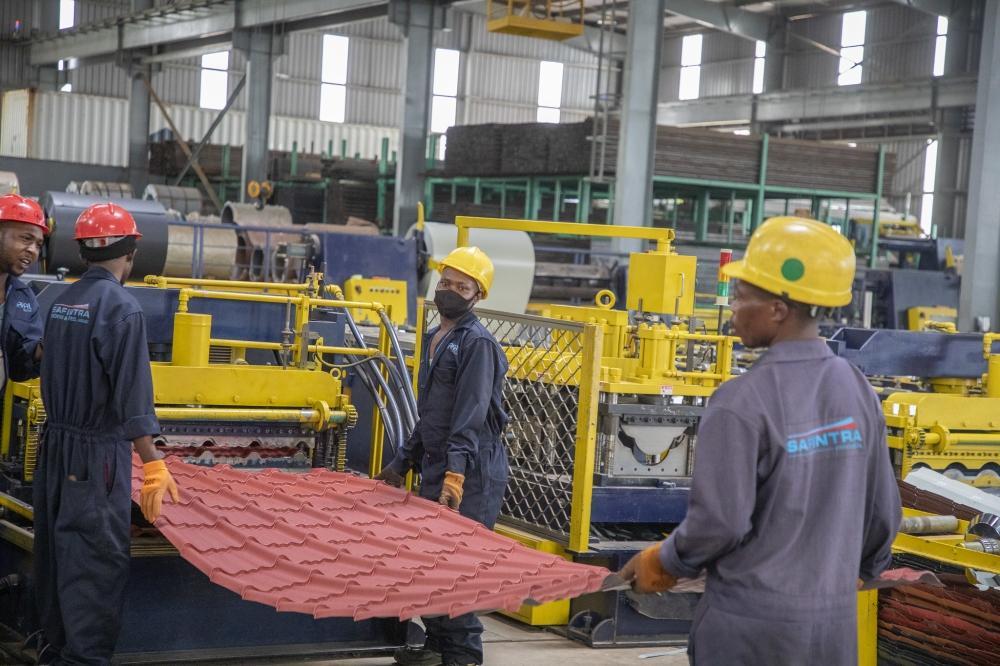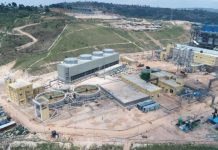Africa-Press – Rwanda. Industrial players have shared mixed reactions to the revised electricity tariffs that took effect on October 1, with some warning of rising production costs while others say the changes will have minimal short-term impact.
The tariffs, last reviewed in 2020, will now be updated every three months to support long-term energy supply planning, according to the Rwanda Utilities Regulatory Authority (RURA).
Under the new structure, small industries including some hotels and ICT service providers pay Rwf175 per kilowatt-hour (kWh). Medium industries such as mining and mineral processing firms, and water treatment plants, pay Rwf133 per kWh.
Large industries, including broadcasting infrastructure providers and electric vehicle (EV) charging stations, are charged Rwf110 per kWh, while extra-large industries such as steel, cement, and large-scale mining operations pay Rwf97 per kWh.
Donald Kabanda, CEO of Rwanda Electric Mobility (REM) Ltd, said the adjustments will not significantly affect EV charging rates but noted persistent supply issues.
“The challenge is not the tariff itself but weak power in some areas. We’ve had to invest in our own transformers,” he said. “That discourages investment because of high costs that are hard to recover. Tariffs should be aligned with improved power reliability.”
Beatha Siborurema, who runs a plastic recycling factory, said her operations will not be immediately affected.
“We’ll make only slight price adjustments over the next six months,” she said, noting that her firm spends about Rwf300,000 per month on electricity.
An official at Safintra Rwanda Ltd, a steel roofing company, said even small changes can have a ripple effect.
“Even a Rwf1 increase matters. We align prices with market conditions, but with the franc depreciating and most inputs imported in foreign currency, production costs keep rising,” the official said.
At Gamico Mining Company, Patience Niyonsaba, Head of Technical Support and Facilities, said the new tariffs are a challenge for energy-intensive businesses.
“We’re waiting for this month’s bill to assess the impact, but costs will definitely rise,” she said. “We don’t control selling prices, and we want to ensure workers aren’t affected. However, we may have to reduce working hours, which will lower output.”
Households and businesses also see increases
For residential users, the lowest consumption bracket has been expanded from 15 to 20 kWh per month. Households consuming 0–20 kWh pay Rwf89 per kWh, while those using 20–50 kWh pay Rwf310, up from Rwf212. Those exceeding 50 kWh now pay Rwf369, up from Rwf249.
Commercial buildings such as offices and retail shops are charged Rwf355 per kWh for usage below 100 kWh per month, up from Rwf227, and Rwf376 for consumption above 100 kWh, up from Rwf255.
Broadcasting services which include radio and television stations now pay Rwf276 per kWh, up from Rwf192. Schools and health facilities are charged Rwf214, compared to Rwf186, while telecommunication towers pay Rwf289, up from Rwf201.
The hospitality sector has also seen changes. Hotels using less than 660,000 kWh per year are billed Rwf239 per kWh, up from Rwf157, while those consuming more are now categorized under industrial tariffs.
Customers with smart meters are billed Rwf175 for small, Rwf133 for medium, Rwf110 for large, and Rwf97 for extra-large industries. Those without smart meters pay flat rates: Rwf175, Rwf156, and Rwf124, respectively.
According to RURA, the quarterly reviews aim to keep tariffs aligned with the cost of power generation and distribution, ensuring both affordability for consumers and sustainability for suppliers.
For More News And Analysis About Rwanda Follow Africa-Press






